Samsung Galaxy Alpha vs Sony Xperia Z3 Compact
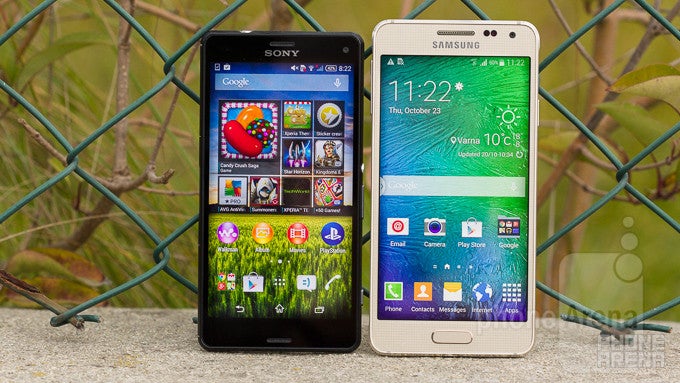
Introduction
If you are gunning for a compact, but powerful Android handset, it doesn't get much harder than choosing between the Galaxy Alpha and the Z3 Compact. Galaxy Alpha is Samsung's first truly elegant small-screen phone, coming with premium design, hardware, and price point.
The most formidable competitor of the Alpha in the land of the green robot is Sony's Xperia Z3 Compact munchkin, and not only because it has almost the same screen diagonal, but also because the waterproof phone has a superb specs sheet that even includes a 20 MP camera. Which is the better compact flagship? Let's find out...
Design
Galaxy Alpha looks more stylish than the Z3 Compact, but Sony housed waterproof stereo speakers, and a huge battery.
While rumors were priming us for a metal-clad, premium Samsung phone, we got the Galaxy Alpha. Granted, it debuted classy metal frame and sides, but kept Samsung's traditional plastic rear cover that can be pried open to swap the battery. The Alpha is lighter and feels way thinner than the Z3 Compact, but Sony's phone is significantly shorter and a bit narrower, so it goes a bit more manageable in the hand. Still, Samsung's stylish creation feels great in the hand, and would be a godsend for those who prefer their Android phones thin.
With the chamfered bezels and metal edge the Galaxy Alpha looks, dare we say it, more premium already.
The Z3 Compact, on the other hand, sports a tempered glass unibody which flaunts a high IP68 waterproof rating, meaning you can dip it in up to five feet of water without a hitch – something that the Alpha can' brag with.
Samsung's stand-out design piece is the physical home key underneath the display with an embedded fingerprint scanner, which requires you to swipe your finger over it the old-fashioned way, instead of employing a touch-based solution like Apple or Huawei. Sony, however, also equipped the Z3 Compact with something extra - a pair of stereo speakers, sitting at the top and bottom of the front half.
Display
Colors accuracy? Who cares, said Sony, and outed the Z3 Compact, while Samsung primed the Alpha with a pretty color-true display that is more visible outdoors.
The Alpha got a 4.7” panel with a “mere” 720x1280 resolution, returning 312ppi, while the Z3 Compact notches it down a tad with a 4.6” panel of the same resolution, boasting 319ppi pixel density. This pixel density is lower than most other phones, but is still perfectly adequate for the vast majority of purposes.
The Z3 Compact's panel is very color-inaccurate, with its color temperature being some of the coldest we've seen – we measured 9964K (6500K is the reference); you can tweak it in the settings, but it still doesn't get much better. The Galaxy Alpha's screen can have the typical AMOLED oversaturation, too, but when choose the Basic screen mode, it goes on the totally opposite end of that spectrum, with excellent temperature of 6800K. Its colors are also pretty accurate in this mode, unlike the Z3 Compact, which has a pretty wide color deviation, as you can see in our chart.
When it comes to peak brightness, the phones are largely equal, with Sony's handset measuring 436nits, against the Galaxy Alpha's 422. The Alpha has slightly better outdoor visibility, as the Z3 Compact's screen reflectance is higher. It’s also worth mentioning that both displays feature a super sensitive mode that recognizes touch even when you operate it with your gloves on, but you need to enable this feature in the settings first.
Interface
Bland, but simple Xperia interface meets the overbearing, but functional Samsung TouchWiz.
Carrying the latest Android 4.4 KitKat, the Galaxy Alpha and the Z3 Compact sport very different interface overlays - it's the overcrowded and squarish TouchWiz of Samsung, against the simplified Xperia UI. Sony's coat of Android paint is closer to the stock look than Samsung's TouchWiz, and has way less extra functions. It adds some light multitasking tools like the Small Apps suite, which lets you hover up to five windowed apps, resize and move them around. It also sports the handy double-tap-to-wake function, which Samsung's handset doesn't have, and that's about it.
Samsung has, as usual, meddled with the experience in very major ways through TouchWiz. For example, the looks of the UI are nothing like what you'd get with a Nexus device, as Samsung has gone for a flatter, colorful aesthetics, which are more appealing compared with previous iterations.
The number of features has also gone up – you now have Ultra Power Saving Mode, which can turn the Alpha's screen black-and-white, and limit available functionality down to the basics – great for those stretches of time when you just can't park yourself next to an outlet. There's a special Multi Window feature which allows you to run and operate two apps simultaneously. Lastly, our personal favorite is Smart Stay – an exceedingly simple, but clever feature that will keep the screen on for as long as you're looking at it, and beyond your default timeout setting.
Processor and memory
Faster chipset and lighter interface make for a performance advantage of the Z3 Compact before the Alpha.
The Z3 Compact is powered by a Snapdragon 801AC processor, clocked at 2.5 GHz, which runs the interface and apps without much issues. The Xperia UI is lighter than TouchWiz, yet we noticed a few gaps in transitions and redrawing while flicking the interface around, though nothing major. Samsung offers two versions of the Alpha – the one for the US market comes with the same 2.5 GHz quad-core Snapdragon 801 as the Z3 Compact, while the other is with the company's own octa-core Exynos 5430 CPU, clocked to 1.8 GHz. Both are very capable chipsets, delivering higher synthetic scores than with the Z3 Compact – our benchmarks below show the results from the 801 variation, but we have the Exynos one now, and it managed even higher stats, especially on AnTuTu. TouchWiz slows down things, though, so navigating around the interface is not the smoothest we've experienced.
The companies have placed 2 GB of RAM in both handsets, so you can rest assured you can load tens of apps in the memory, and pick up right where you left off without a hitch. The Z3 Compact comes with 16 GB of internal memory, while Samsung planted 32 GB in its Alpha, but, unlike Sony's phone, it lacks a microSD slot for expansion.
Internet and connectivity
Samsung has equipped the Alpha with two browsers – its own TouchWiz piece, and Google's Chrome, while the Z3 Compact ships with Chrome only. The browsers on both handsets perform admirably while scrolling, panning around, or zooming, but we would give our preference to the TouchWiz renderer, which is faster, and lets you sideload Adobe Flash.
The handsets flaunt 4G LTE connectivity, with market-dependent bands support and 42 Mbps HSPA+. The Galaxy Alpha LTE modem supports Cat. 6, meaning up to 300 Mbps download speeds, if your carrier can provide those at all, while Sony makes do with a Cat.4 one, featuring a 150Mbps pipeline. We also get Wi-Fi/ac, Wi-Fi Direct, Bluetooth 4.0, A-GPS, DLNA, and NFC on the phones, but Sony one-ups Samsung in wired connectivity, as it flaunts an MHL port, letting you hook the Z3 directly, or through an adapter, to a TV.
Camera
Galaxy Alpha video has continuous autofocus and stellar audio, while the Z3 Compact gets better as the lights start dimming down.
The Alpha comes with a 12 MP camera module, while Sony's flagship sports a 20.7 MP sensor, as its larger sibling. Both come with the typical 2 MP front-facing shooters, capable of 1080p video recording. The handsets are adequately fast to shoot and record a snap, with Samsung's Phase Detection Autofocus System giving it quite the edge here, while the Xperia Z3 Compact adds a dedicated shutter button to the scale, so you can take a photo from locked screen in a second or two.
The two camera interfaces are anything but bland, as they sport a bewildering variety of shooting modes, color effects, and neat depth-of-field tricks. You can bet that there are all the basics, such as real-time HDR, Panorama, and so on. Samsung's interface is easier to use than the cluttered Xperia camera app, but if you are shooting in the default automatic modes, taking pictures with both phones is a breeze. The Alpha shoots in the full 12 MP by default, while Sony's SuperiorAuto mode snaps in 8 MP, and you have to switch to Manual mode for all the 20 megapixels to kick in, with the accompanying artifacts and huge file sizes.
Both phones produce high-quality photos, with tones slightly warmer on the Alpha, while the Z3 keeps hues a bit colder by default. The two phones chose quite the different exposure settings when shooting in their automatic modes – the Alpha usually goes a step higher, making the frame appear brighter but more washed-out, though in some cases the situation is reversed. Outdoors the phones manage to grab good amount of detail, with a slight preference going to Samsung's phone.
Indoors, the Z3 Compact camera does a better job, while not with digital noise, which is higher than on the Alpha, but with often sharper look, and more eye-pleasing colors, compared to the lifeless production from Samsung's phone. With the flash on we do get a very slight blue cast from the Z3 Compact (no dual-tone flash here), but on the whole picture quality is good, while the flash of the Alpha gives those “blueish” pics.
Both the Z3 Compact and the Galaxy Alpha support 4K video recording capabilities, which returns some amazing levels of detail, but you can't use extra modes like HDR or Sony's excellent digital stabilization. Still, we'll have to give one up to the Galaxy Alpha, as its continuous autofocus works splendid during the 4K footage, while Sony makes you choose a manual 1080p recording mode for the continuous autofocus to kick in. The more traditional 1080p footage can be recorded with either 60fps or 30fps on both, and comes fluid, without artifacts or skipped frames. The Samsung-produced colors are more appealing, though, while the Z3 Compact footage looks rather bland in comparison. The Alpha also records stellar audio with 256 bitrate, just like the Note 4, for instance, though it has two mics, not three like the big brother.
Multimedia
Both galleries offer grid thumbnail views, and allow for rich picture editing from within the apps, as well as sport plenty of sharing options. Video playback is excellent on both handset, too, as they support DivX/Xvid/MKV files out of the box, and the players offer plenty of extras like zooming, previews, and subtitles support.
When it comes to the music players, we'd have to give one up for the Xperia phone, as it has a much sleeker and more comfortable interface. Both Z3's Walkman player, and Samsung's TouchWiz one have plenty of equalizer and visualization options built in, but the graphical environment on the Sony looks much more stylish than the squarish Samsung UI.
Sony offers two waterproof stereo speakers at the front, which sound clean, but are somewhat average in loudness, while the Alpha only offers one speaker at the bottom, which emits quality tunes, but is with pretty unimpressive output strength.
Call quality
The Galaxy Alpha offers a subpar earpiece, while Z3 Compact does stellar on both ends.

Call quality is very good on the Xperia Z3 Compact. Voices in the earpiece are sufficiently loud, and clarity is good, but not perfect - you can recognize the natural tonality of your caller’s voices, but they sound a bit muffled. On the other end of the line, call quality is excellent. The two noise-canceling microphones convey voices clearly and loudly.
Battery
Not that the Alpha doesn't squeeze respectable battery life, but the Z3 Compact has amazing one.
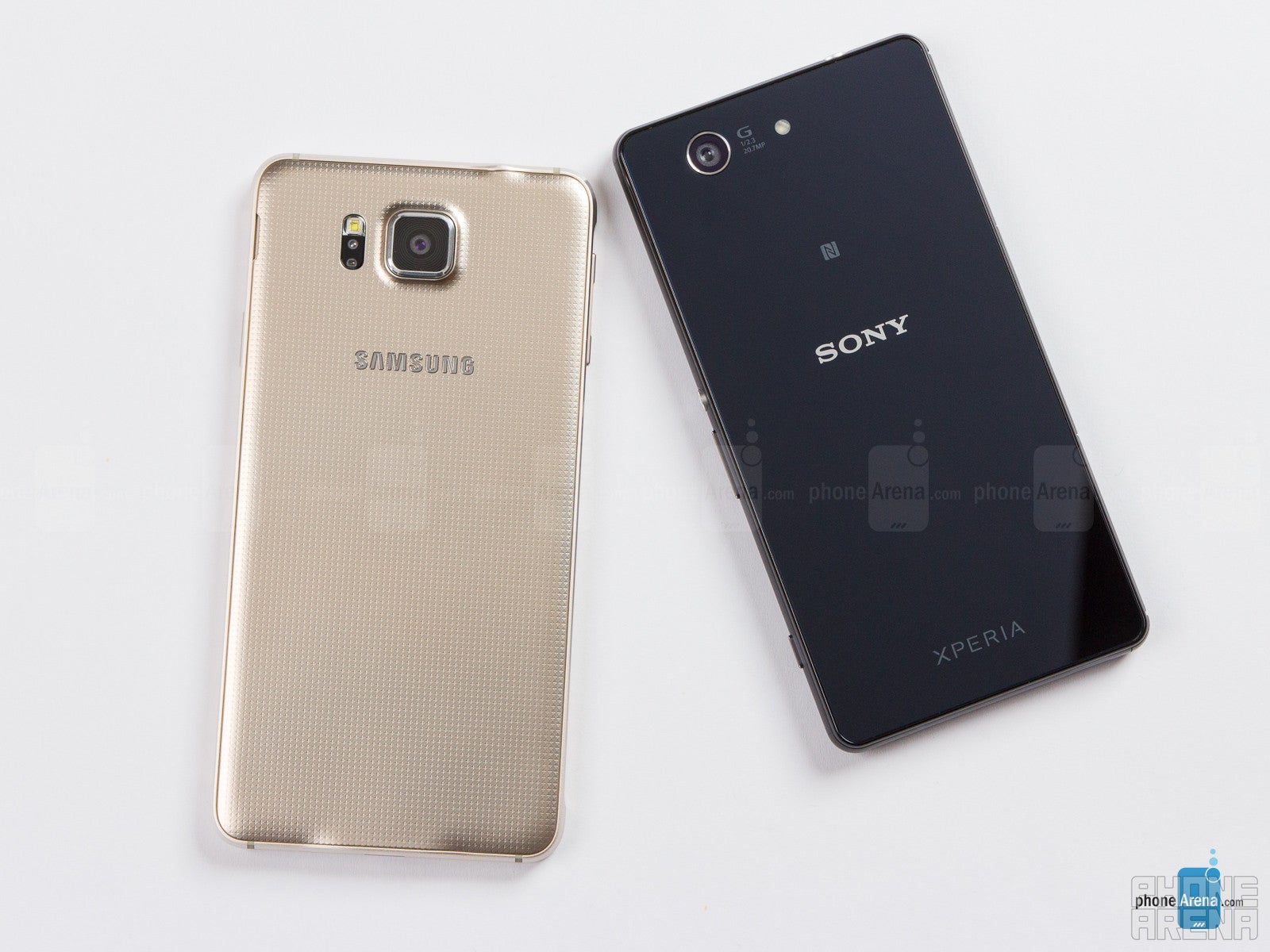
Nothing is more excellent than the Xperia Z3 Compact, however. Sony is the undisputed king of battery life with its recent smartphones, and the munchkin just killed once again. The rather large 2600mAh juicer of the Z3 Compact allowed it to achieve more than 10 hours on our battery benchmark, placing it in the top 3 brand-name handsets we've ever measured, zipping past all phablets out there, and their enormous batteries.
Conclusion
Geez, it was a tough battle between those two, seeing that they sport very similar specs and performance. The Galaxy Alpha has a thinner body than the Z3 Compact, but the latter is thicker for a reason, flaunting a water-tight chassis, and a large battery that delivers record endurance.
The Alpha is the winner when it comes to screen quality – it can offer these oversaturated colors that the AMOLEDs are known for, but can also be pretty accurate in its basic mode. The Z3 Compact, on the other hand, has one of the coldest screens we've seen. When it comes to camera quality, the Galaxy Alpha has faster focus, as well as a more versatile 4K video recording with better audio, yet the picture quality is on par with the Z3 Compact outdoors, and slightly worse in low-light.
The Z3 Compact's extra design feature – its stereo speakers at the front – are arguably a more useful addition than Samsung's stand-out fingerprint scanner, too. The Galaxy Alpha also loses the battery life and call quality match, as well as the price battle – the Sony Z3 Compact is currently $150 cheaper than the Alpha, so you will be voting with your wallet as well.

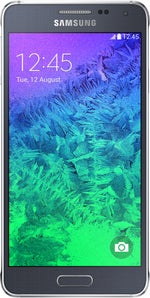
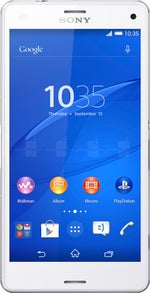


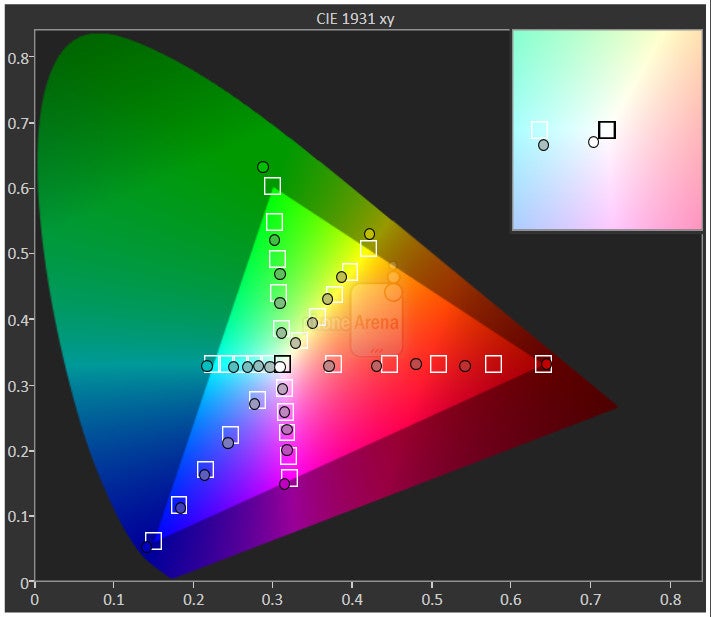







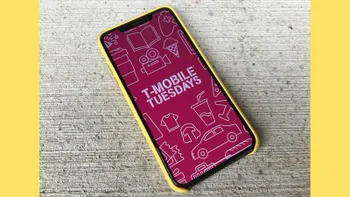
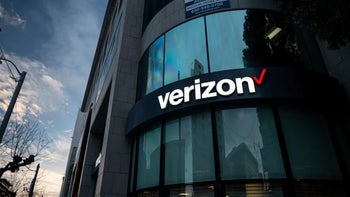
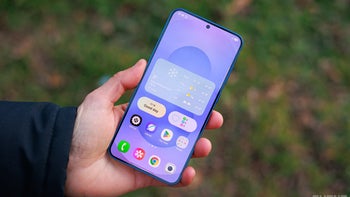
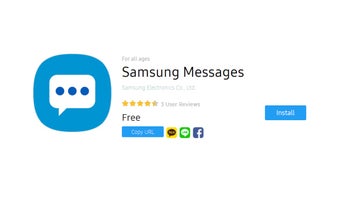
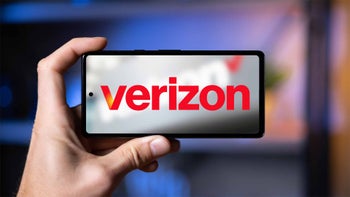
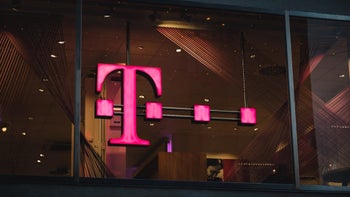
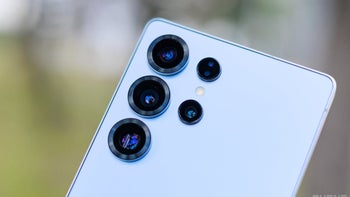
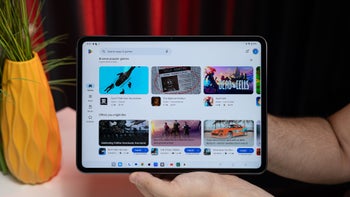
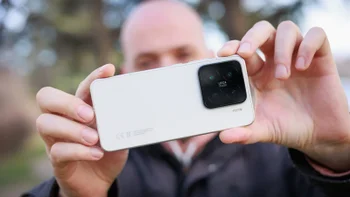
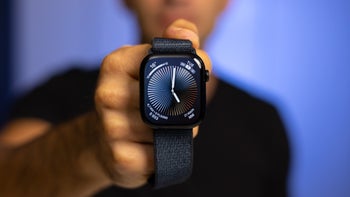

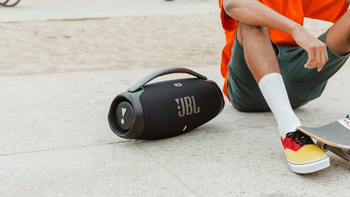
Things that are NOT allowed:
To help keep our community safe and free from spam, we apply temporary limits to newly created accounts: